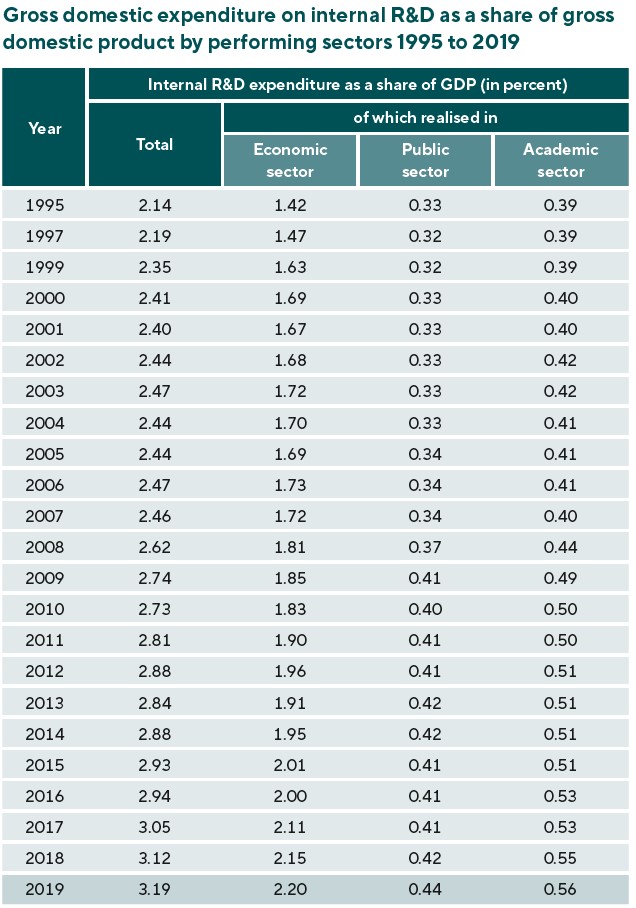The value of science
Two years ago, the VDCO decided to discontinue the longstanding association journal "die Kontaktlinse". Instead, together with the DOZ publishing house, it decided to launch a new peer-reviewed journal that would do much more than just provide information. Optometry & Contact Lenses (OCL) has been VDCO's new association journal since the first issue in June 2021.
However, why did the VDCO decide to do this?
The value of science is difficult to measure and is assessed very differently, both personally and socially. The German government has taken a clear position in favour of research and development (R&D). R&D is an important source of new knowledge and innovation, and the resulting technical progress is crucial for economic growth and competitiveness. The Federal Government has therefore set the goal of investing 3.5 per cent of gross domestic product (GDP) in R&D by 2025. In 2019 476,000 full-time equivalents were employed in R&D, more people than ever before in this field. The table on the right shows the gross domestic expenditure on internal R&D as a share of GDP by performing sector from 1995 to 2019. The clear trend is that more funds are being made available for R&D each year. In an international comparison, however, Germany is not quite in the lead. Countries such as South Korea, Israel and Sweden already invest 3.5 per cent or more of their GDP in R&D. What can society expect from science for which it pays taxpayers' money? New technologies, medicines, new hospital concepts, as recently demonstrated by Denmark? Since 2014, the Copenhagen Healthtech Cluster (CHC) has been organising the conversion and new construction of Denmark's hospitals.

By 2025, 16 super-hospitals will have been built. Six of them will be new buildings, circular and completely designed from scratch. The others will also be modernised and digitalised, and all will be networked with each other. The planned costs for this project amount to a total of 5.7 billion euros. With a population of 5.8 million (2021), this is a considerable sum. Integrated into the project are 85 innovative e-health and telemedicine projects. They are intended to make the daily work routine, but also the course of treatment, more flexible and efficient. All doctors in the country receive future-oriented training in the super-hospitals, and every patient has access to specialists. The distances are sometimes longer for the individual, but this unique project is profitable for society. In 2021, the companies in Germany will have spent 75.2 billion euros on their own, in-house research and development. This is an increase of 5.9 percent compared to the previous year. Expenditure on research contracts has also increased. Companies often rely on the knowledge and services of others and award research and development contracts to other companies or universities and research institutions at national and international level. In 2021, total external R&D expenditure amounted to 26.1 billion euros - an increase of 14 percent compared to the previous year. These are the results of initial trend data from the survey on research and development in the business enterprise sector, which is conducted annually by the statistics unit at the Stifterverband. In 2021, Germany spent 13.1 per cent of GDP on health research and economics, equivalent to total expenditure of €441 billion and €5,298 per capita. “Medicine proposes values beyond science, which practitioners share," said Dr John R Guyton, Editor of Elsevier Public Health Emergency Collection. "Respect for the person. Reverence for life in its fullest capacity" 1 These values are also shared by the VDCO, and with the OCL we have come a little closer towards providing interested readers with an insight into the high level of research and practice carried out by our colleagues in Germany. In addition, there is the insight into how colleagues from all over the world practise and what topics they are currently working on. Research thrives on critical readers who take up the contents, question them and sometimes use them as a basis for their own scientific work.
We would like to thank all authors for their excellent work and thank the readers for their trust. We wish you all a healthy new year 2023!
References
[1] Guyton, J. R. (2021). From the Editor: Trust and the Value Paradox in Science. J. Clin. Lipidol., 15, 761–762.